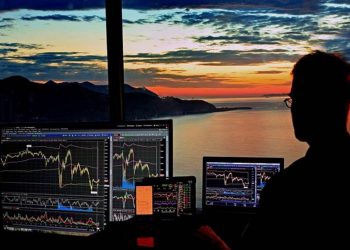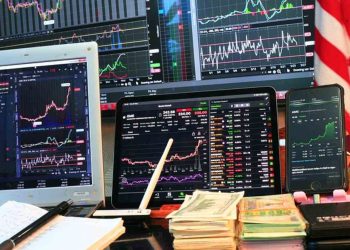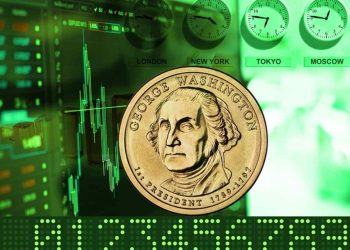Forex trading involves buying and selling currency pairs on the forex market. Forex traders can make money by taking advantage of leverage, and trading takes place around the clock, five days a week. Here is some interesting Information about forex robot.
Success in Forex trading requires understanding risks and making wise financial decisions, as well as dedicating sufficient time and energy to learning the fundamentals and terminology.
Getting Started
Forex (foreign exchange) trading involves purchasing or selling currencies over an international financial market. As it connects all continents globally with an internet connection and broker account, forex trading can be daunting to beginners as its unique process requires specific knowledge.
As opposed to stocks and bonds, currencies are traded in pairs rather than individually. Their price depends on their current exchange rate against another, meaning when you purchase USD/GBP or EUR/AUD, you are actually betting that its value will increase relative to that of either the British pound or euro, respectively.
It is of great importance to search for a reputable forex broker with educational materials that cover basic trading processes, strategies, and risk management. An optimal trading platform would offer access to research tools, technical charts, and quote screens that make research simple for users. Educational materials covering these aspects will ensure maximum returns on your investments.
Understand your broker’s terms and conditions carefully to avoid scams and avoid long wait periods before trading when funding an account through check or wire transfer, while others charge fees for depositing and withdrawing money or closing accounts. Read your broker’s T& C carefully in order to stay safe when doing your research and avoid scams.
Trading Platforms
Trading platforms are pieces of software that facilitate trading activities by connecting traders directly to markets. They provide various functions designed to streamline the trading process and give traders an overview of current and historical price data as well as market news. Furthermore, trading platforms also enable traders to place orders and monitor open positions; some platforms even provide tools for conducting analyses and research.
Which trading platform you select depends on both your level of experience and trading goals. Newcomers might prefer an easy-to-use online brokerage with accessible educational materials and responsive customer support, as well as some that provide paper trading to allow novice traders to hone their craft without risking real cash investments.
Search for trading platforms regulated by either the Securities and Exchange Commission (SEC) or the Financial Industry Regulatory Authority (FINRA) to ensure the brokerage firm adheres to fiduciary standards that will help safeguard your investments should it experience insolvency issues.
Finally, when searching for a trading platform that meets all your trading needs—forex, stocks, commodities, and cryptocurrencies alike—look for one with multiple trading instruments, secure measures, and payment methods, such as forex. Also, consider trading platforms that provide demo accounts so you can familiarize yourself with their features before investing any real cash.
Trading Platform Features
Traders must first establish their trading goals and then select the platform that best facilitates meeting them. A suitable platform should provide functions such as charts and technical indicators that help identify market trends; some platforms even provide real-time news feeds or economic data calendars so traders can stay abreast of market developments.
Different forex brokers provide various trading platforms, each featuring its own set of features and functionality. A good broker will provide a user-friendly trading app accessible on desktops and mobile devices; additionally, they should offer educational materials designed to facilitate learning.
The MetaTrader 4 (MT4) trading platform is widely considered one of the top retail trading platforms available. It features user-friendly navigation, advanced mobile applications, and sophisticated charting tools to assist newcomers to the market. If you want something more advanced, consider the more advanced MT5 platform, which has 38 trading indicators and multiple timeframes available for trading.
The IG platform is another good option for new forex traders. It features an intuitive, user-friendly interface that’s simple to navigate across a range of devices. Furthermore, educational seminars and webinars on trading concepts provide additional insight into this industry. Plus, its practice account provides access to $20,000 in virtual funds so novice traders can safely test their abilities while investing with pretend money.
Trading Platform Pricing
Pricing alone shouldn’t be your only factor in choosing a trading platform; traders should also evaluate other features offered by brokers, such as personalized reports, market insights, educational resources, trade signals, and customer support services.
Forex (foreign exchange) is the global market where currencies are traded. Currencies play an integral part in modern life and are exchanged for international business and trade. Trading forex allows individuals to speculate on future currency movements by buying low and selling high to make a profit.
Foreign Exchange (Forex) markets offer traders more than just liquidity—they also give traders access to leverage, which allows them to manage large trade sizes with relatively minimal capital thanks to contract-for-difference (CFD) trading and pairs trading.
There are various forex trading strategies, each offering its own set of benefits and drawbacks. Some traders take a more short-term approach by employing swing trading strategies to buy highs and sell lows over several days, while other traders prefer taking longer-term positions using position trading strategies.











